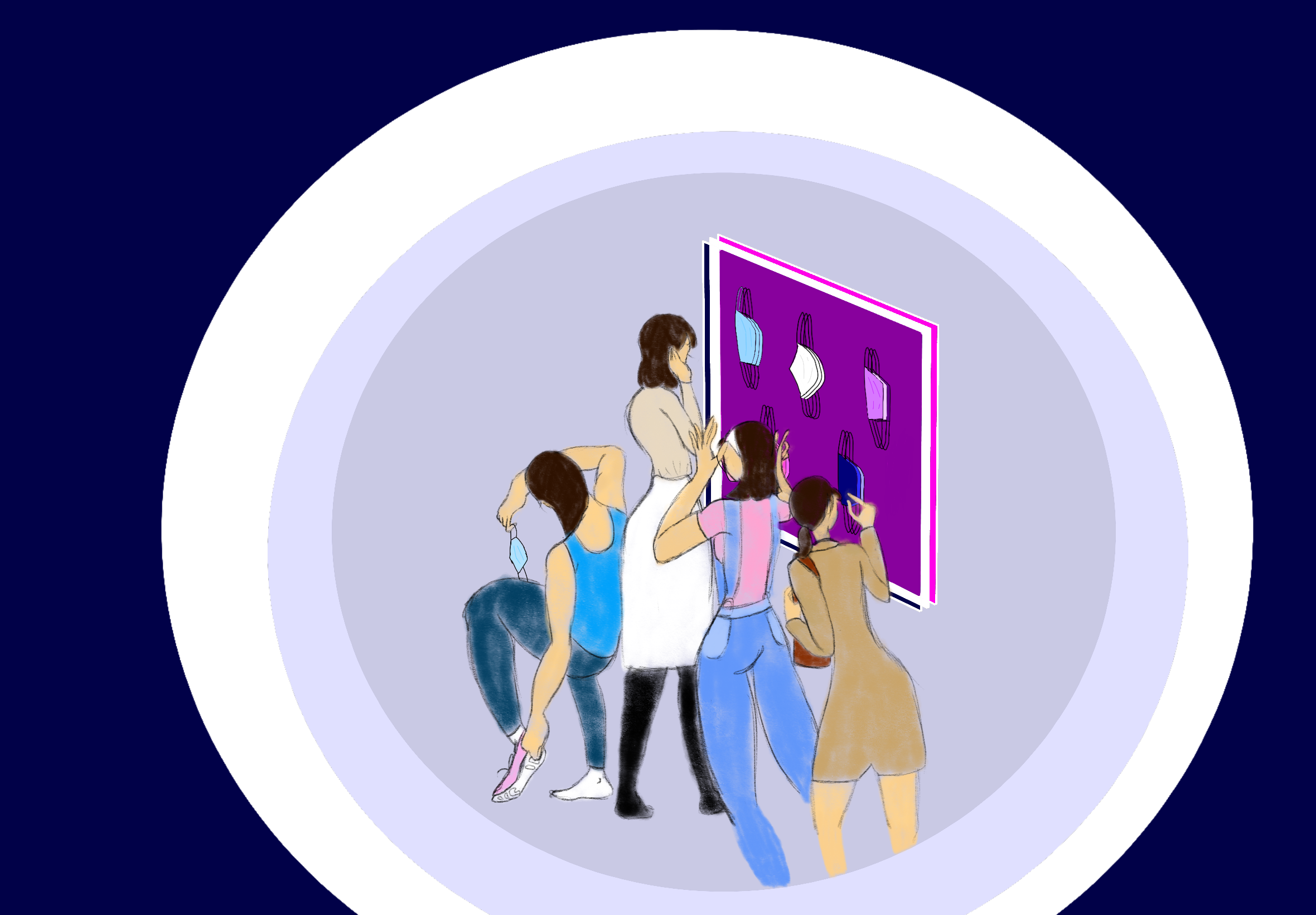Graphic by Mari Al Tayb ‘26.
By Qingyun Shi ’23
Staff Writer
On Jan. 31, 2023, South Korea dropped indoor mask mandates, a New York Times article reported. Beginning March 13, 2023, the government of Japan will further ease COVID-19 guidelines on mask-wearing, including those pertaining to public transportation and schools. According to The Japan Times, Prime Minister Fumio Kishida hopes that relaxing public health measures will benefit economic and social activities.
The New York Times article explained that wearing a mask has become part of a daily routine in people’s lives over the past three years, especially in some East Asian countries where pandemic restrictions have lingered for much longer than in other parts of the world. Despite the fact that governments are now easing legal restrictions, the article reported that many residents in countries such as South Korea and Japan are unlikely to stop wearing masks completely any time soon.
Naomi Tanaka, who lives and works in Japan, spoke to this issue in a recent interview with Mount Holyoke News. “Japanese people have always been wearing mask[s], even before COVID-19,” Tanaka said. “In Japanese society, wearing masks is very common; many people — including me from time to time — will put on a mask when going outside.”
There are several reasons for people to continue wearing masks, according to the article. First, the habit can be difficult to change since masking has been the norm for the past three years. In Japan, for example, some call masks “kao pantsu,” or “face pants,” to convey that individuals would feel the same level of embarrassment when removing their masks as when removing their pants in public, The New York Times explained. For others in South Korea and Japan, masking can be a solution for social pressures around behaviors such as wearing makeup or smiling frequently. The article also explained that mask-wearing is seen as an effective measure for protecting individuals such as the elderly or those at risk of developing severe symptoms from being infected with COVID-19.
Tanaka discussed the reasons why many people in Japan still wear masks. “I think there are two main reasons why Japanese people adopted this habit. One: wearing a mask when sick is a sign of consideration for others in Japanese culture. Two: Many Japanese people are allergic to flower [spores] in the air, especially in the spring. Wearing a mask can help you avoid contact.”
As of March 13, passengers on public transportation in Japan will not be required to wear masks due to individual seating, an article by The Japan Times reported. Students and teachers will also not be required to wear masks during upcoming graduation ceremonies as long as preventative health measures are put in place, such as adequate ventilation in rooms. The government will also encourage institutions to not pressure people to remove their masks if individuals wish to continue wearing them. Masks will continue to be recommended in congested indoor areas when social distancing is impossible, The Japan Times said.
Although both South Korea and Japan are continuing to reduce mask regulations, The New York Times reported that health authorities in both countries still encourage mask-wearing. COVID-19 infections in both countries have declined steadily in the past month, but health authorities worry that decreased regulations around masks and travel restrictions will cause another spike in cases.




